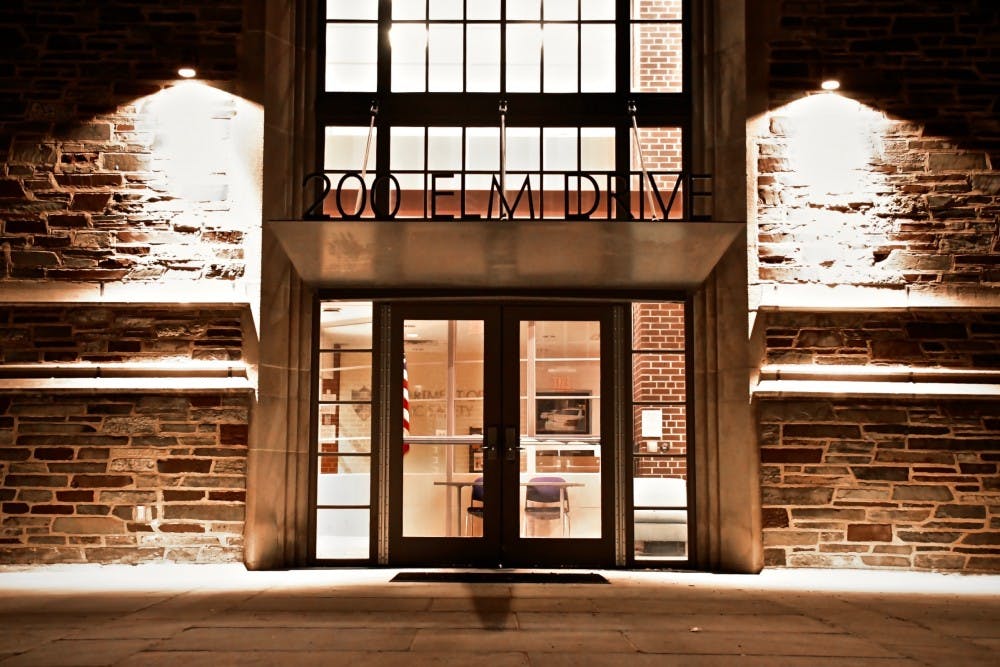A recent report from University Department of Public Safety (DPS) found that reported incidents of burglary and motor vehicle theft on campus increased substantially in 2018. Reported burglaries jumped from 17 to 27 from 2017 to 2018, while reports of motor vehicle theft jumped from five to 17.
“Burglary is higher than last year but within a three year range,“ Assistant Vice President for Public Safety Paul Ominsky wrote in an email to the Daily Princetonian. “Theft of motor vehicles, which [in the report] are golf carts, are up significantly. Each of these golf carts has been recovered on campus.”
Those crime statistics were a part of the University’s recently released “Annual Security and Fire Safety Report 2019,” available on University Public Safety’s website.
Ominsky noted that thus far in the academic year, the number of reported bike thefts have decreased, although reports of scooter theft have increased.
“The DPS [bike] bait program has led to two arrests, which may be a contributing factor,“ Ominsky wrote.
Other reported criminal activities decreased from 2017 to 2018, with zero cases of robbery, aggravated assault, or hate crimes being reported in 2018. The year also featured two reported cases of arson, of which there had been zero reported cases in 2016 or 2017.
The Department of Public Safety’s distinction between robbery and burglary, as noted in the report, holds that burglary involves some kind of unlawful entry to commit a felony or theft, while robbery constitutes an individual’s attempt to take anything that does not belong to him or her.
Reports of rape stayed fairly constant during the last two years, with 13 reported in 2018, 12 reported in 2017, and 13 reported in 2016.

The report also notes that there have been zero reported cases of murder/non-negligent manslaughter, negligent manslaughter, and incest in at least the last three years of the report.
Also included in the report were statistics regarding fires during the 2018 year, listing five incidents on campus: one in Blair Hall, one in 1901 Hall, one in Dodge-Osborne, one in Yoseloff Hall, and one in the Lawrence Graduate apartments.
2018 saw an increase in fires from the previous year, with one fire in the Lawrence apartments in 2017. In 2016, there were four fires reported, in Holder Hall, Spelman Halls, one in the Lakeside and one in the Lawrence apartments.
According to an email sent to the student body, the report “includes statistics for the previous three years concerning reported crimes that occurred: on campus; in certain off-campus buildings owned or controlled by Princeton University or its students; and on public property within or immediately adjacent to and accessible from Princeton University.”

The DPS report is nationally mandated by the Jeanne Clery Disclosure of Campus Security Policy and Campus Crime Statistics Act, which requires colleges and universities that receive federal funding to annually publish statistics on crime at and around their campuses.
“The Department of Public Safety (DPS) sends the Princeton University Clery report to every member of the community before Oct. 1 each year, in compliance with federal law,“ Ominsky wrote in his email to the ‘Prince.’ “The report contains valuable information about resources, emergency preparedness, policies and procedures, as well as crime and fire statistics for the campus in 2018.”
Not all reported crimes result in charges. The statistics provided by DPS reflect numbers of reported crimes, not the number of charges filed.
The report states that the statistics included within the University’s DPS report were collected from public safety officers’ crime reports, which are entered at the time of an incident in the department’s integrated record management system. After a report is created and catalogued in the system, a department administrator reviews the report to check that the crime is correctly classified.
The department periodically examines the data to ensure all reported crimes are recorded in accordance with the crime definitions outlined in the FBI Uniform Crime Reporting Handbook and, for sex offenses, the FBI National Incident-Based Reporting System Handbook, the report further stated.
The report also noted that Public Safety crime statistics do not include reports of sexual assault, harassment, or reports made through confidential resources such as the Sexual Harassment/Assault Advising, Resources, and Education office. These reports cannot be investigated by campus police or University officials unless confidential counselors are given permission to share details that would personally identify the victim.
Ominsky emphasized DPS’ commitment to serving the campus.
“I encourage every member of the community to assist DPS. Community safety is a partnership between the department and the community,“ Ominsky wrote. “The mission of DPS is community care-taking.”








